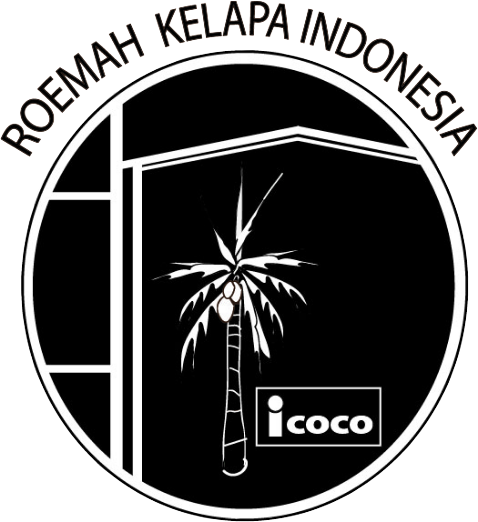
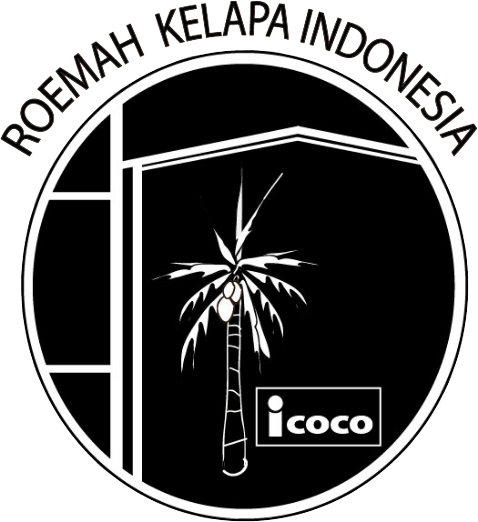
Roemah Kelapa Indonesia Group




CO-OPERATION WITH UNIVERSITIES
IPB UNIVERSITY
CO-OPERATION WITH UNIVERSITIES
IPB UNIVERSITY
IPB University and RoeKI: Building the Future of Indonesian Coconut Industry
IPB University (Institut Pertanian Bogor) is widely recognized as the leading agricultural university in Indonesia, often referred to as the country’s “agricultural lighthouse.” It consistently ranks among the top universities in Asia in the field of agriculture and life sciences, and has a strong presence in global university rankings, highlighting its role as a center of excellence in agricultural education, research, and innovation.
Roemah Kelapa Indonesia (RoeKI) has established a deep and strategic relationship with IPB University. Many of RoeKI’s active members, experts, and advisors are either alumni, retired professors, or current lecturers of IPB who remain committed to advancing coconut development and supporting farmers. This connection ensures that RoeKI’s initiatives are backed by academic rigor, scientific research, and decades of hands-on experience.
The collaboration spans the entire coconut value chain, from upstream (cultivation, replanting, and farm management) to downstream (processing, product diversification, and industry development). This holistic approach integrates knowledge from multiple disciplines, creating a united platform where expertise, research, and field practice converge for the advancement of Indonesia’s coconut sector.
RoeKI itself is composed of professionals from diverse backgrounds, associations, and industries who share a common vision: strengthening Indonesia’s coconut industry and improving farmers’ welfare. With IPB University as an academic backbone, RoeKI has evolved into a new entity in both the national and international coconut landscape—bridging science, industry, and farmer empowerment.
This growing alliance reflects a larger movement. Increasingly, more experts, institutions, and stakeholders are joining RoeKI, seeing it as the right platform to integrate knowledge, innovation, and collaboration. Together with IPB University, RoeKI is positioned to redefine Indonesia’s role in the global coconut industry while ensuring that farmer prosperity remains at the heart of its mission.
Strategic Collaboration Between IPB University and Roemah Kelapa Indonesia (RoeKI)
IPB University, as Indonesia’s premier institution in agricultural education and research, has played a central role in supporting Roemah Kelapa Indonesia (RoeKI) through several of its key faculties and directorates. These collaborations have been designed to connect academic excellence with practical field applications, ensuring that coconut development in Indonesia is supported by strong scientific and institutional foundations.
1. Faculty of Agriculture (Faperta IPB)
The Faculty of Agriculture (Fakultas Pertanian) is the oldest and one of the most respected faculties within IPB University. It provides expertise in agronomy, soil science, plant breeding, and sustainable farming practices. Collaboration with RoeKI focuses on strengthening good agricultural practices (GAP) for coconut cultivation, developing replanting strategies, and promoting climate-resilient farming systems. The faculty has also been involved in training programs for farmers, ensuring that scientific innovations are transferred effectively to the field.
2. Directorate of Domestic Collaboration (Direktorat Kerjasama Dalam Negeri IPB)
This directorate serves as the official gateway for building partnerships between IPB and domestic stakeholders, including government bodies, regional authorities, and private sector actors. Through this unit, RoeKI has formalized its partnership with IPB, enabling joint initiatives such as MoUs with local governments, academic institutions, and cooperatives. The directorate ensures that the collaboration framework is aligned with national agricultural development strategies and facilitates wider institutional support for RoeKI’s programs.
3. Integrated Laboratory of IPB University (Laboratorium Terpadu IPB)
The Integrated Laboratory serves as a state-of-the-art facility that supports multi-disciplinary research and testing. For RoeKI, this laboratory provides analytical services for coconut-based products, including quality assurance, chemical composition, and food safety analysis. The collaboration ensures that coconut products meet both national and international standards, thus enhancing competitiveness in the export market.
4. Center for Agricultural and Rural Development Studies (PSP3 IPB)
The Center for Agricultural and Rural Development Studies (Pusat Studi Pembangunan Pertanian dan Pedesaan/PSP3) specializes in rural development, agricultural economics, and community empowerment. Together with RoeKI, PSP3 has been involved in designing community-based coconut development programs, cooperative models, and socio-economic studies to improve farmer livelihoods. This partnership also explores policy recommendations and strategies to ensure that coconut farming communities benefit directly from industrial value chains and global trade opportunities.
5. Surfactant and Bioenergy Research Center (SBRC IPB)
SBRC is a leading research center at IPB specializing in the development of surfactants, biofuels, and renewable energy. The collaboration with RoeKI focuses on advanced research and training related to coconut shell charcoal, briquettes, and bioenergy derivatives. This partnership enables innovation in clean energy solutions and adds higher value to coconut by-products, aligning with global sustainability goals.
6. Agribusiness and Communication Incubator (AGRIN IPB)
AGRIN IPB functions as a business incubator and innovation hub, providing guidance in entrepreneurship, agribusiness development, and commercialization strategies. With RoeKI, AGRIN supports the incubation of coconut-based enterprises, business model development, and startup mentoring. This collaboration helps transform research and field programs into sustainable business ventures that can attract investment and create jobs.
7. Sekolah Peternakan Rakyat (SPR IPB)
The People’s Livestock School (SPR) is an innovative IPB program initiated by Prof. Muladno, designed to empower rural communities through structured training and cooperative-based agribusiness models. In partnership with RoeKI, SPR has been extended to coconut-growing regions, combining livestock development with coconut-based farming systems. This integrated approach improves land use efficiency, farmer incomes, and food security while promoting rural entrepreneurship.
Together, this ecosystem reflects a holistic collaboration that bridges science, policy, innovation, and community empowerment to build a resilient and competitive Indonesian coconut industry.

The collaboration between IPB University and Roemah Kelapa Indonesia (RoeKI) spans across multiple faculties, directorates, research centers, and incubation platforms. Each unit contributes distinct expertise
Together, this ecosystem reflects a holistic collaboration that bridges science, policy, innovation, and community empowerment to build a resilient and competitive Indonesian coconut industry.
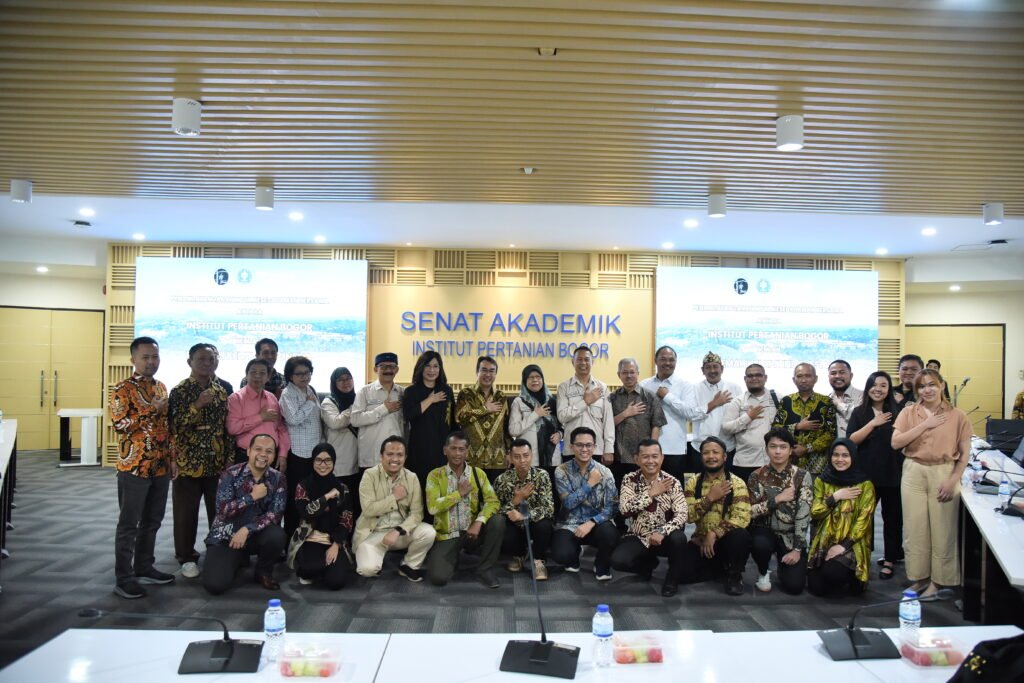
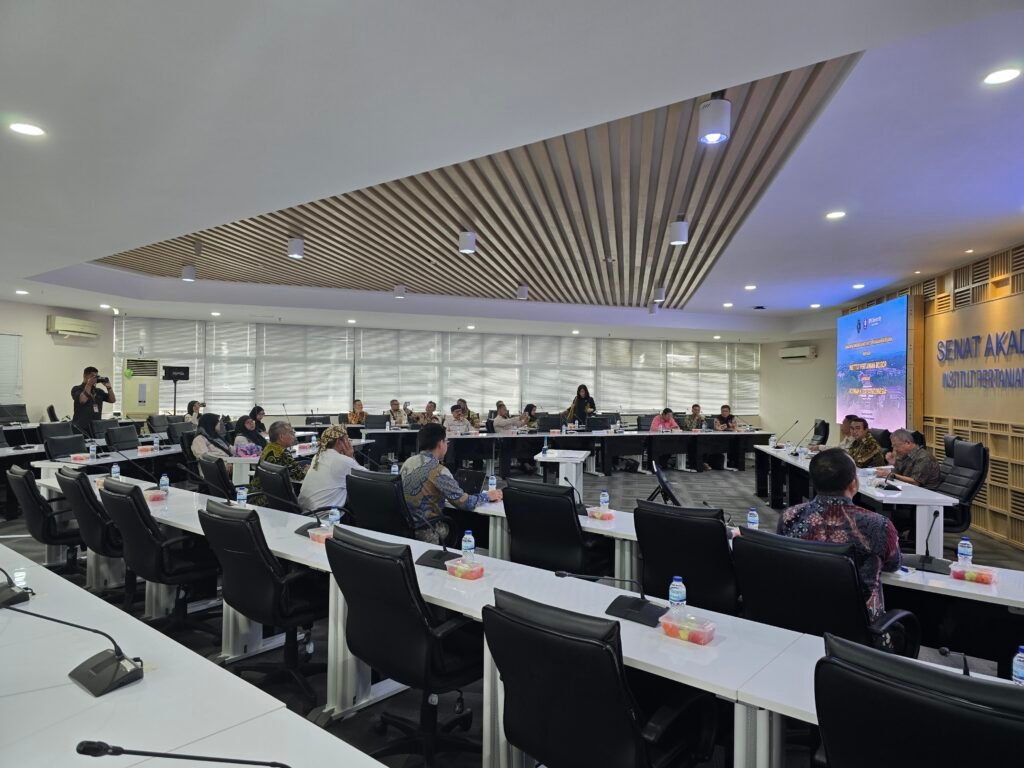
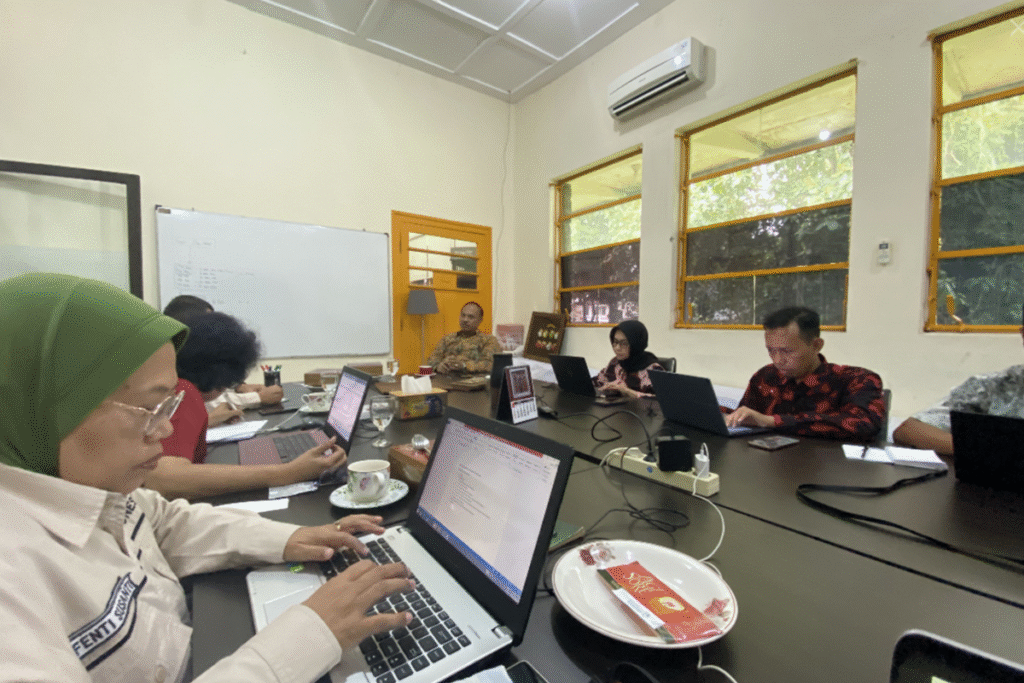
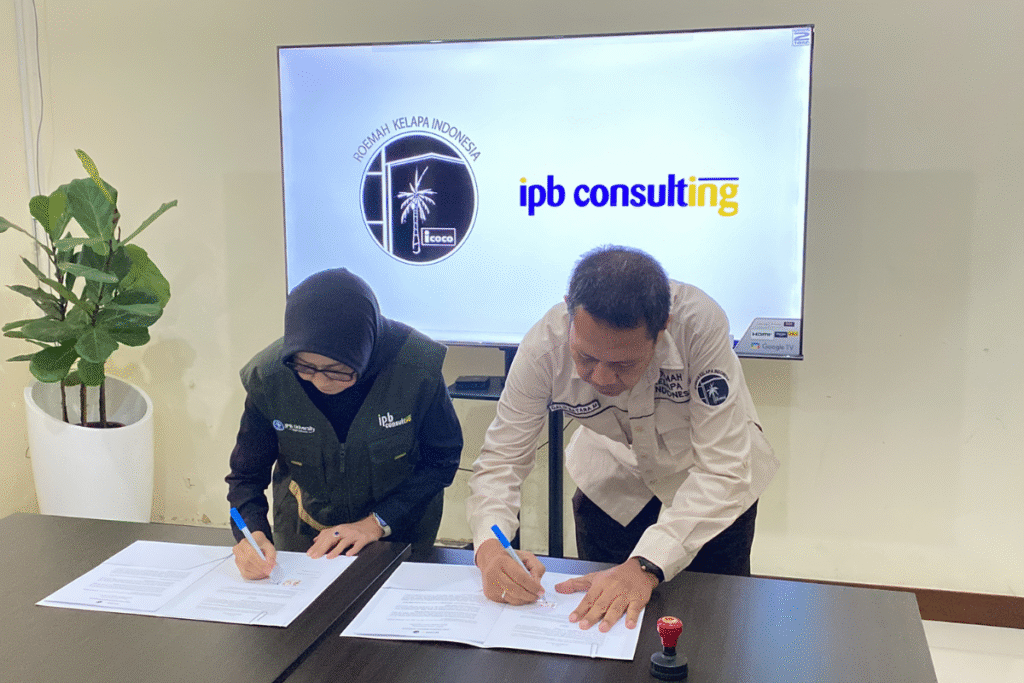

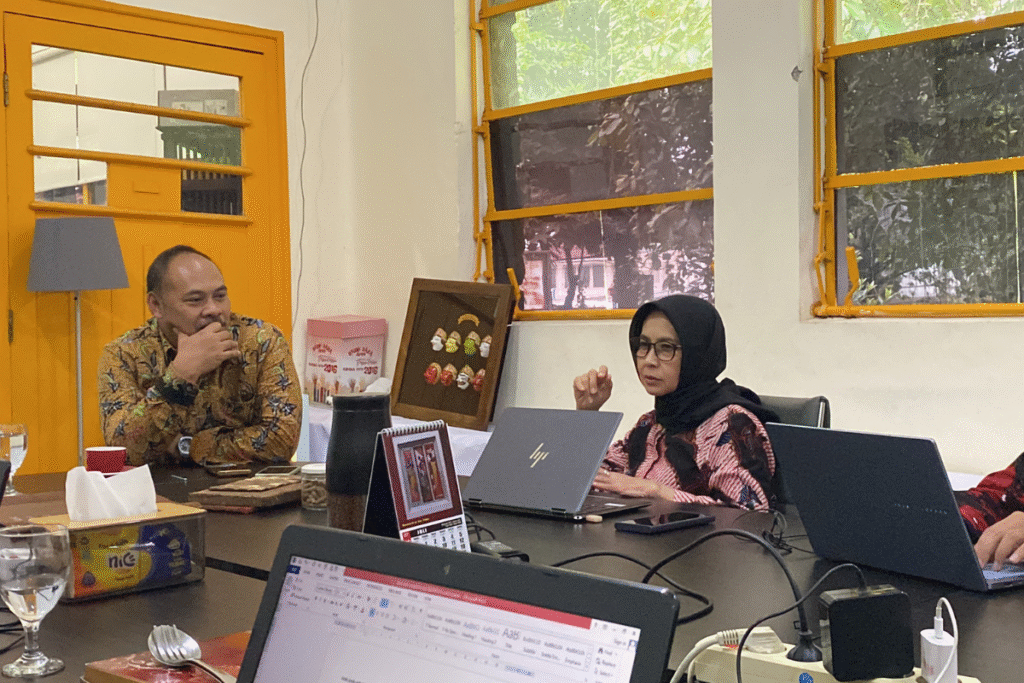
IPB University and RoeKI: Building the Future of Indonesian Coconut Industry
IPB University (Institut Pertanian Bogor) is widely recognized as the leading agricultural university in Indonesia, often referred to as the country’s “agricultural lighthouse.” It consistently ranks among the top universities in Asia in the field of agriculture and life sciences, and has a strong presence in global university rankings, highlighting its role as a center of excellence in agricultural education, research, and innovation.
Roemah Kelapa Indonesia (RoeKI) has established a deep and strategic relationship with IPB University. Many of RoeKI’s active members, experts, and advisors are either alumni, retired professors, or current lecturers of IPB who remain committed to advancing coconut development and supporting farmers. This connection ensures that RoeKI’s initiatives are backed by academic rigor, scientific research, and decades of hands-on experience.
The collaboration spans the entire coconut value chain, from upstream (cultivation, replanting, and farm management) to downstream (processing, product diversification, and industry development). This holistic approach integrates knowledge from multiple disciplines, creating a united platform where expertise, research, and field practice converge for the advancement of Indonesia’s coconut sector.
RoeKI itself is composed of professionals from diverse backgrounds, associations, and industries who share a common vision: strengthening Indonesia’s coconut industry and improving farmers’ welfare. With IPB University as an academic backbone, RoeKI has evolved into a new entity in both the national and international coconut landscape—bridging science, industry, and farmer empowerment.
This growing alliance reflects a larger movement. Increasingly, more experts, institutions, and stakeholders are joining RoeKI, seeing it as the right platform to integrate knowledge, innovation, and collaboration. Together with IPB University, RoeKI is positioned to redefine Indonesia’s role in the global coconut industry while ensuring that farmer prosperity remains at the heart of its mission.
Strategic Collaboration Between IPB University and Roemah Kelapa Indonesia (RoeKI)
IPB University, as Indonesia’s premier institution in agricultural education and research, has played a central role in supporting Roemah Kelapa Indonesia (RoeKI) through several of its key faculties and directorates. These collaborations have been designed to connect academic excellence with practical field applications, ensuring that coconut development in Indonesia is supported by strong scientific and institutional foundations.
1. Faculty of Agriculture (Faperta IPB)
The Faculty of Agriculture (Fakultas Pertanian) is the oldest and one of the most respected faculties within IPB University. It provides expertise in agronomy, soil science, plant breeding, and sustainable farming practices. Collaboration with RoeKI focuses on strengthening good agricultural practices (GAP) for coconut cultivation, developing replanting strategies, and promoting climate-resilient farming systems. The faculty has also been involved in training programs for farmers, ensuring that scientific innovations are transferred effectively to the field.
2. Directorate of Domestic Collaboration (Direktorat Kerjasama Dalam Negeri IPB)
This directorate serves as the official gateway for building partnerships between IPB and domestic stakeholders, including government bodies, regional authorities, and private sector actors. Through this unit, RoeKI has formalized its partnership with IPB, enabling joint initiatives such as MoUs with local governments, academic institutions, and cooperatives. The directorate ensures that the collaboration framework is aligned with national agricultural development strategies and facilitates wider institutional support for RoeKI’s programs.
3. Integrated Laboratory of IPB University (Laboratorium Terpadu IPB)
The Integrated Laboratory serves as a state-of-the-art facility that supports multi-disciplinary research and testing. For RoeKI, this laboratory provides analytical services for coconut-based products, including quality assurance, chemical composition, and food safety analysis. The collaboration ensures that coconut products meet both national and international standards, thus enhancing competitiveness in the export market.
4. Center for Agricultural and Rural Development Studies (PSP3 IPB)
The Center for Agricultural and Rural Development Studies (Pusat Studi Pembangunan Pertanian dan Pedesaan/PSP3) specializes in rural development, agricultural economics, and community empowerment. Together with RoeKI, PSP3 has been involved in designing community-based coconut development programs, cooperative models, and socio-economic studies to improve farmer livelihoods. This partnership also explores policy recommendations and strategies to ensure that coconut farming communities benefit directly from industrial value chains and global trade opportunities.
5. Surfactant and Bioenergy Research Center (SBRC IPB)
SBRC is a leading research center at IPB specializing in the development of surfactants, biofuels, and renewable energy. The collaboration with RoeKI focuses on advanced research and training related to coconut shell charcoal, briquettes, and bioenergy derivatives. This partnership enables innovation in clean energy solutions and adds higher value to coconut by-products, aligning with global sustainability goals.
6. Agribusiness and Communication Incubator (AGRIN IPB)
AGRIN IPB functions as a business incubator and innovation hub, providing guidance in entrepreneurship, agribusiness development, and commercialization strategies. With RoeKI, AGRIN supports the incubation of coconut-based enterprises, business model development, and startup mentoring. This collaboration helps transform research and field programs into sustainable business ventures that can attract investment and create jobs.
7. Sekolah Peternakan Rakyat (SPR IPB)
The People’s Livestock School (SPR) is an innovative IPB program initiated by Prof. Muladno, designed to empower rural communities through structured training and cooperative-based agribusiness models. In partnership with RoeKI, SPR has been extended to coconut-growing regions, combining livestock development with coconut-based farming systems. This integrated approach improves land use efficiency, farmer incomes, and food security while promoting rural entrepreneurship.
Together, this ecosystem reflects a holistic collaboration that bridges science, policy, innovation, and community empowerment to build a resilient and competitive Indonesian coconut industry.

The collaboration between IPB University and Roemah Kelapa Indonesia (RoeKI) spans across multiple faculties, directorates, research centers, and incubation platforms. Each unit contributes distinct expertise
Together, this ecosystem reflects a holistic collaboration that bridges science, policy, innovation, and community empowerment to build a resilient and competitive Indonesian coconut industry.








RWTH UNIVERSITY AACHEN - GERMANY
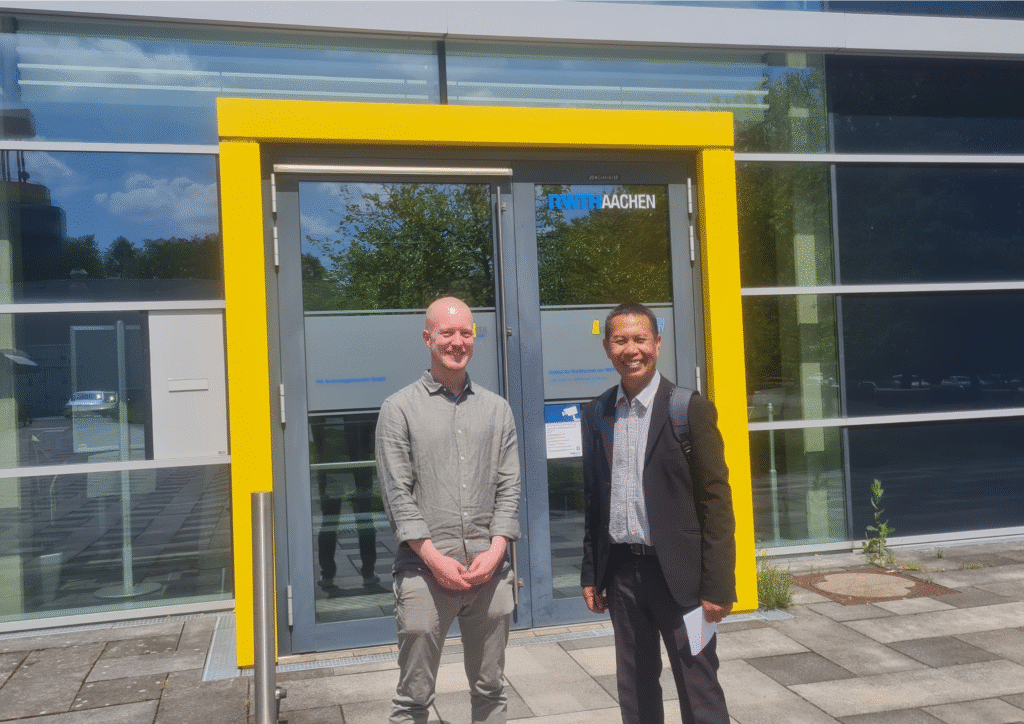
A Global Leader in Technology and Sustainability
RWTH Aachen University stands as one of Europe’s most prestigious institutions in engineering, technology, and applied sciences, with an exceptional track record in environmental innovation, renewable energy, and sustainability programs. Its interdisciplinary research, strong industry linkages, and advanced laboratories make RWTH a true pioneer in preparing real-world solutions for global challenges.
For Roemah Kelapa Indonesia (RoeKI), building collaboration with RWTH Aachen is a strategic step. The university’s expertise in green technologies, waste-to-energy systems, carbon reduction, and sustainable materials is fully aligned with RoeKI’s mission to modernize the coconut industry and transform agricultural resources into high-value, eco-friendly products.
Furthermore, Aachen is also home to several international agencies and global trading hubs. By establishing strong ties with IPA in Aachen, RoeKI gains access not only to world-class technological know-how, but also to global networks of procurement, financing, and market entry opportunities.
This dual collaboration—bridging scientific excellence at RWTH and international trade through purchasing agencies—will enable RoeKI to accelerate innovation, open new markets for Indonesian coconut products, and position itself as a key global player in sustainability-driven agribusiness.
RWTH UNIVERSITY AACHEN - GERMANY

A Global Leader in Technology and Sustainability
RWTH Aachen University stands as one of Europe’s most prestigious institutions in engineering, technology, and applied sciences, with an exceptional track record in environmental innovation, renewable energy, and sustainability programs. Its interdisciplinary research, strong industry linkages, and advanced laboratories make RWTH a true pioneer in preparing real-world solutions for global challenges.
For Roemah Kelapa Indonesia (RoeKI), building collaboration with RWTH Aachen is a strategic step. The university’s expertise in green technologies, waste-to-energy systems, carbon reduction, and sustainable materials is fully aligned with RoeKI’s mission to modernize the coconut industry and transform agricultural resources into high-value, eco-friendly products.
Furthermore, Aachen is also home to several international agencies and global trading hubs. By establishing strong ties with IPA in Aachen, RoeKI gains access not only to world-class technological know-how, but also to global networks of procurement, financing, and market entry opportunities.
This dual collaboration—bridging scientific excellence at RWTH and international trade through purchasing agencies—will enable RoeKI to accelerate innovation, open new markets for Indonesian coconut products, and position itself as a key global player in sustainability-driven agribusiness.